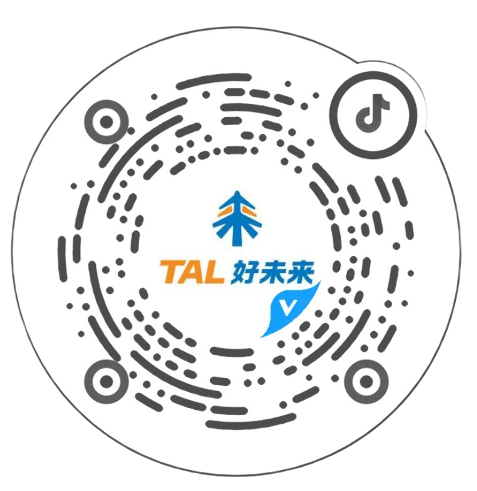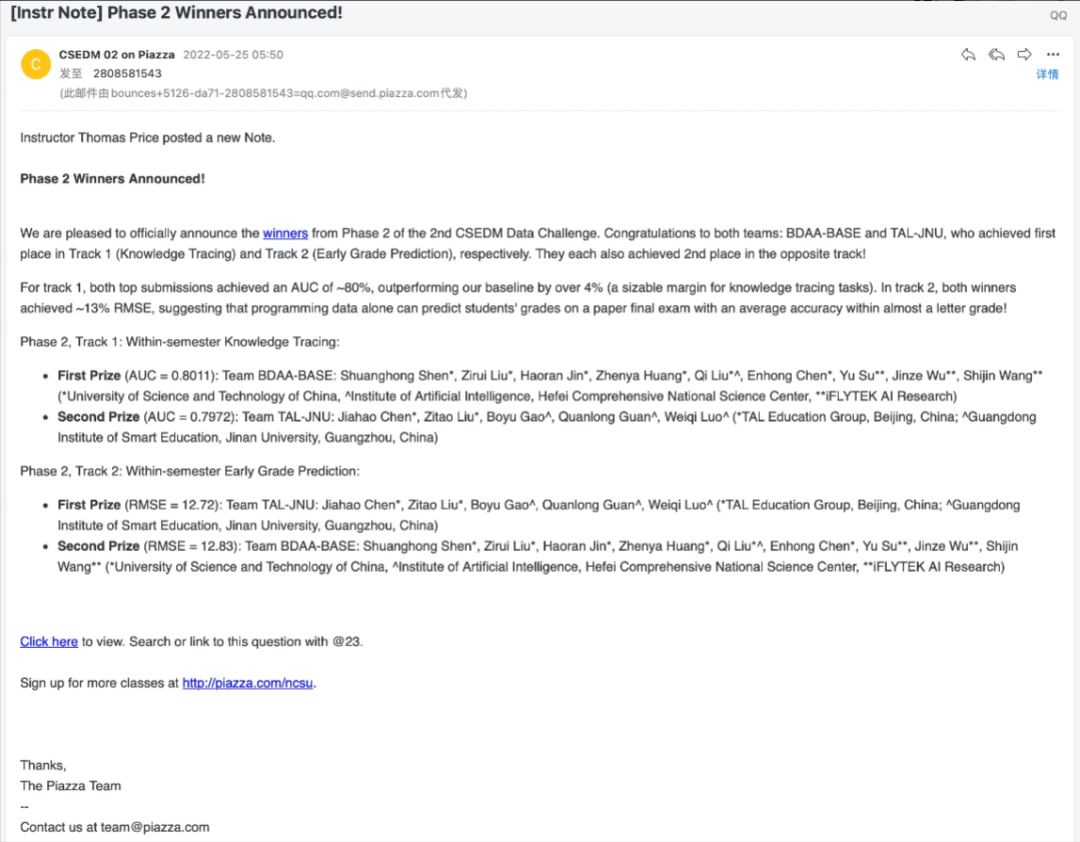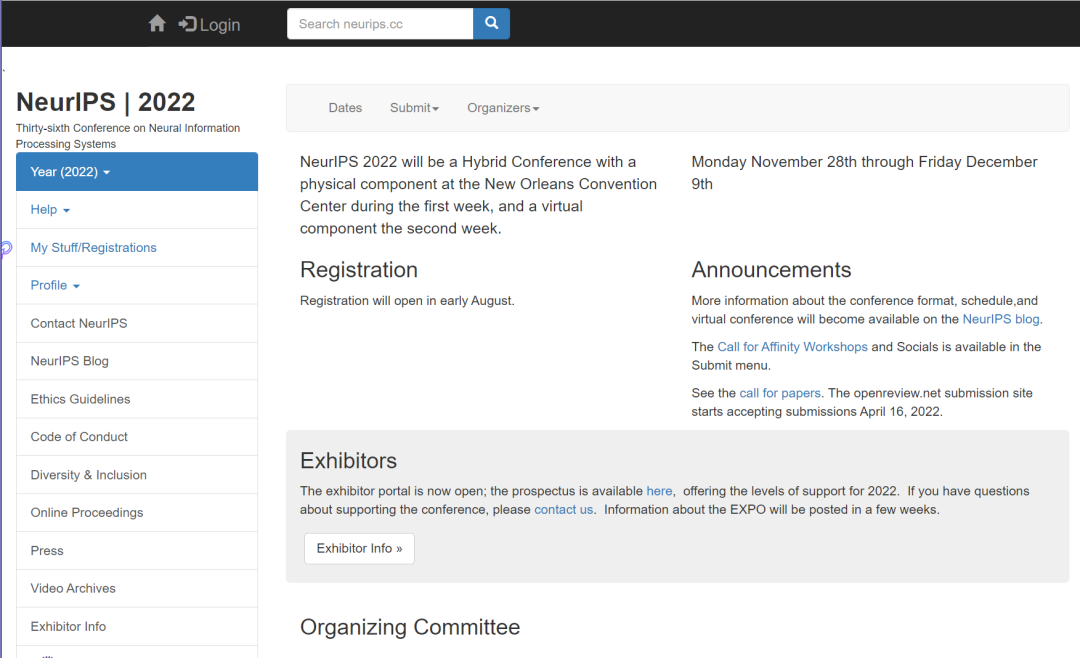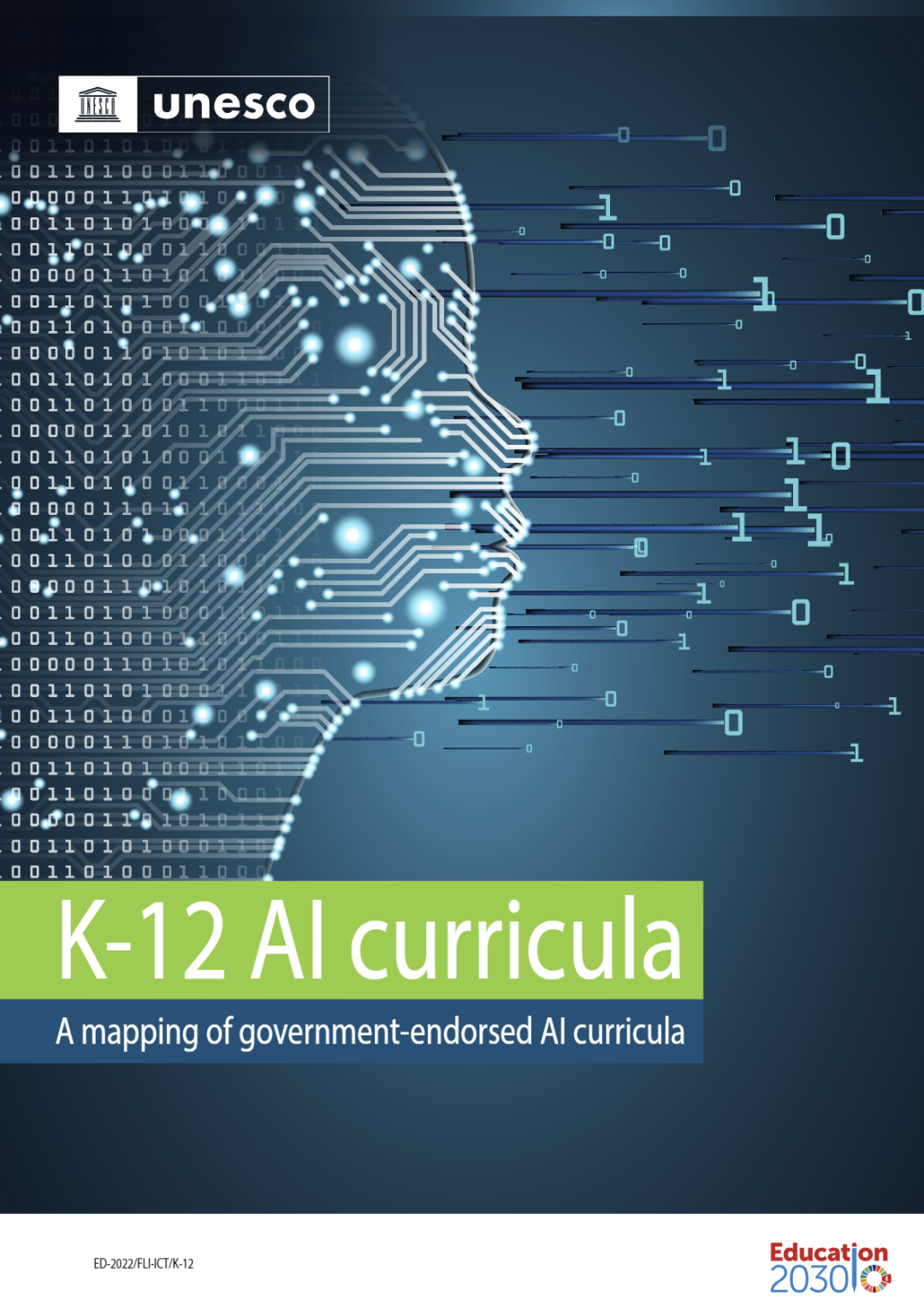




Recently, the results of the second stage of the 5th Educational Data Mining in Computer Science Education Workshop Challenge were announced. The international business algorithm team of TAL and Guangdong Institute of Smart Education at Jinan University have stood out from 95 teams worldwide. They won first place and second place in the two tasks of the second phase.

Image: TAL received the championship notification for the International Computer Education Data Mining Competition
As an important conference event in the field of artificial intelligence and computer education, the competition was jointly organized by North Carolina State University, the University of Pittsburgh, Carnegie Mellon University, and the University of Helsinki. It attracted many domestic and foreign universities and research institutions, including the University of Science and Technology of China, Jinan University, and the Hefei Comprehensive National Science Center's Artificial Intelligence Institute, with a total of 95 professional teams participating.
The focus of this competition was on "intelligent evaluation" in computer education, requiring participating teams to use students' past responses and outcomes to programming problems to predict their future performance in computer learning. The goal is to use artificial intelligence to automatically and intelligently assess and diagnose students' learning situations and knowledge mastery, thereby promoting personalized education.
The second-stage competition was divided into two tasks. In the competition task for Task 1, the TAL team transformed the problem into a recommendation problem by drawing on cutting-edge recommendation algorithms, modeling the students' past learning interaction information to predict their future learning behavior, thereby achieving second place. Participants mentioned that unlike the conventional Knowledge Tracing (KT) task, which only predicts the future of one question, Task 1 required predicting performance on multiple upcoming problems. Compared to traditional tasks, this task was more challenging. The technology utilized by TAL has been applied in the daily practical teaching of its brands such as Xueersi Literacy, and Xueersi Online School, effectively predicting students' future learning performance and providing tailored teaching methods and content, truly achieving personalized education.
Task 2 delved deeper by requiring the prediction of students' end-of-term performance based on their performance in half a semester of courses. The difficulty of this task lay in the limited data size and the challenge of maintaining algorithm stability. Thanks to the accumulated experience in actual business, the TAL team extracted key features for this task and used a multi-stage approach to enhance the stability of the model, ultimately achieving first place.
It is worth mentioning that the technology utilized by TAL previously won the championship in the "Education Challenge" competition at NeurIPS 2020. According to reports, this technology is derived from TAL's internal "Student Course Dropout Prediction System," which predicts student dropout behavior by analyzing the interaction information between students and teachers as well as students' classroom performance information, and has achieved effective results in practical applications.

Note: NIPS (NeurIPS), the Conference and Workshop on Neural Information Processing Systems, is an international conference on machine learning and computational neuroscience. It is held every December. In the international academic conference ranking of the China Computer Society, NIPS is an A-level conference in the field of artificial intelligence.
As the research and development unit for the national new generation of artificial intelligence open innovation platform for smart education, TAL has made significant progress and contributions in the field of artificial intelligence and education, and has repeatedly been recognized by international organizations and the international academic community, and has been promoted globally as the "Chinese solution" in the field of educational informationization.
In April 2022, two papers by the international business algorithm team of TAL were accepted by the International Conference on Artificial Intelligence in Education (AIED). AIED is known internationally for providing intelligent systems and cognitive science methods to high-quality research for educational computing applications, and the papers it accepts represent the latest development direction and level of artificial intelligence in the field of education applications.
In the latter part of 2021, the achievements of Xueersi Online School, a platform under TAL, were considered a "Chinese education solution" during the pandemic by the Joint Research Center of the European Commission and were recommended in the "Pre- and Post-Pandemic Chinese Educational Technology Report," which was shared with Europe and the world. In June, two technological achievements by TAL, the "GodEye Classroom Teaching Quality Monitoring System" and the "Xiaohou Enlightenment Possible Solution for Children's Growth," were included in the UNICEF report "Artificial Intelligence for Children." Also, in the same year, TAL's case studies of "AI + Education" were included in the "K-12 AI Course: Officially Recognized AI Course Design Guide" by UNESCO, recommended to policymakers worldwide.

Reference image: "K-12 AI Course: Officially Recognized AI Course Design Guide"
The relevant head stated that TAL will continue to advance in-depth research in the field of educational technology, empower education with technology, and open up a series of related datasets and technological research results to promote further development of intelligent education at home and abroad.